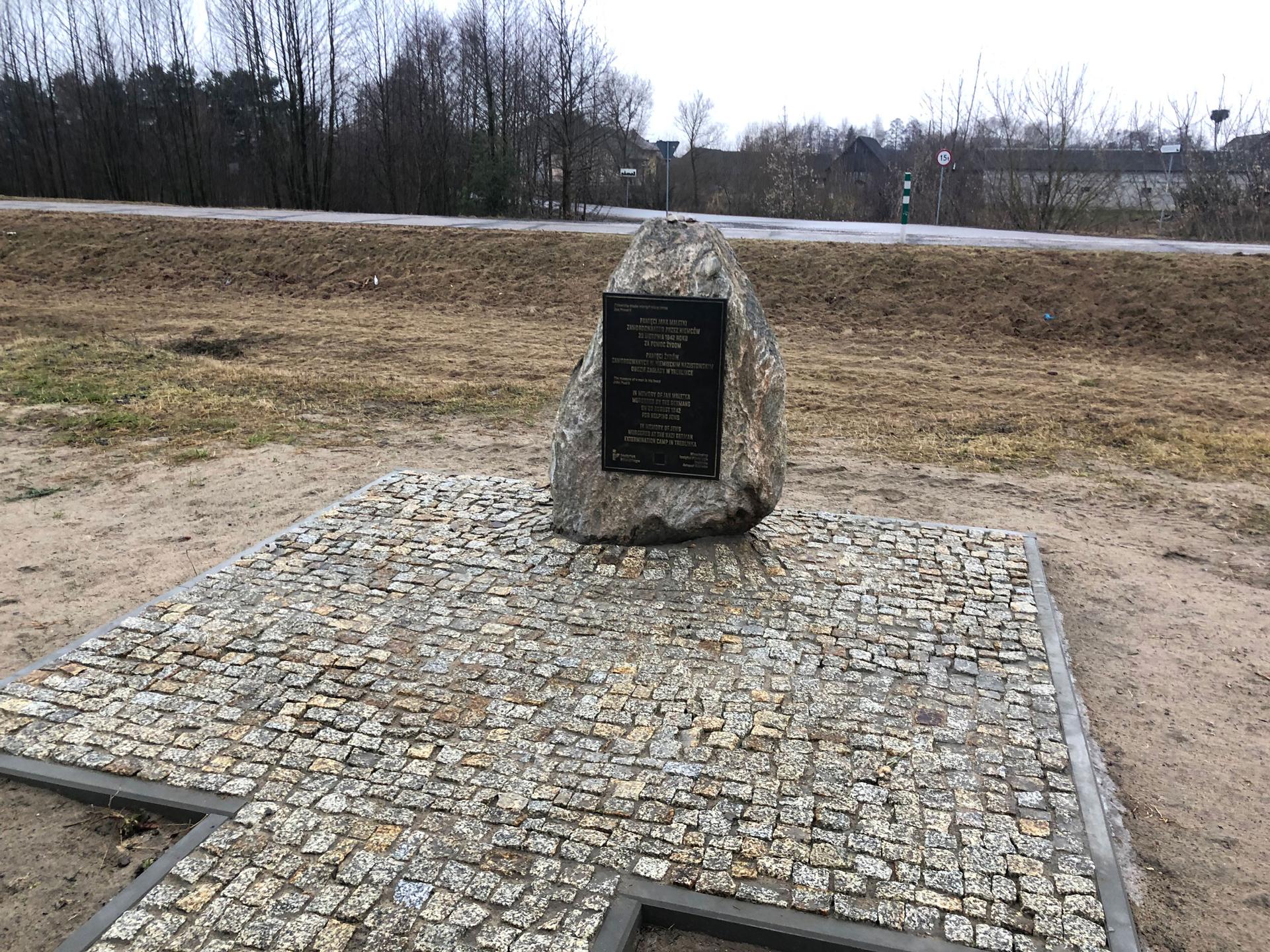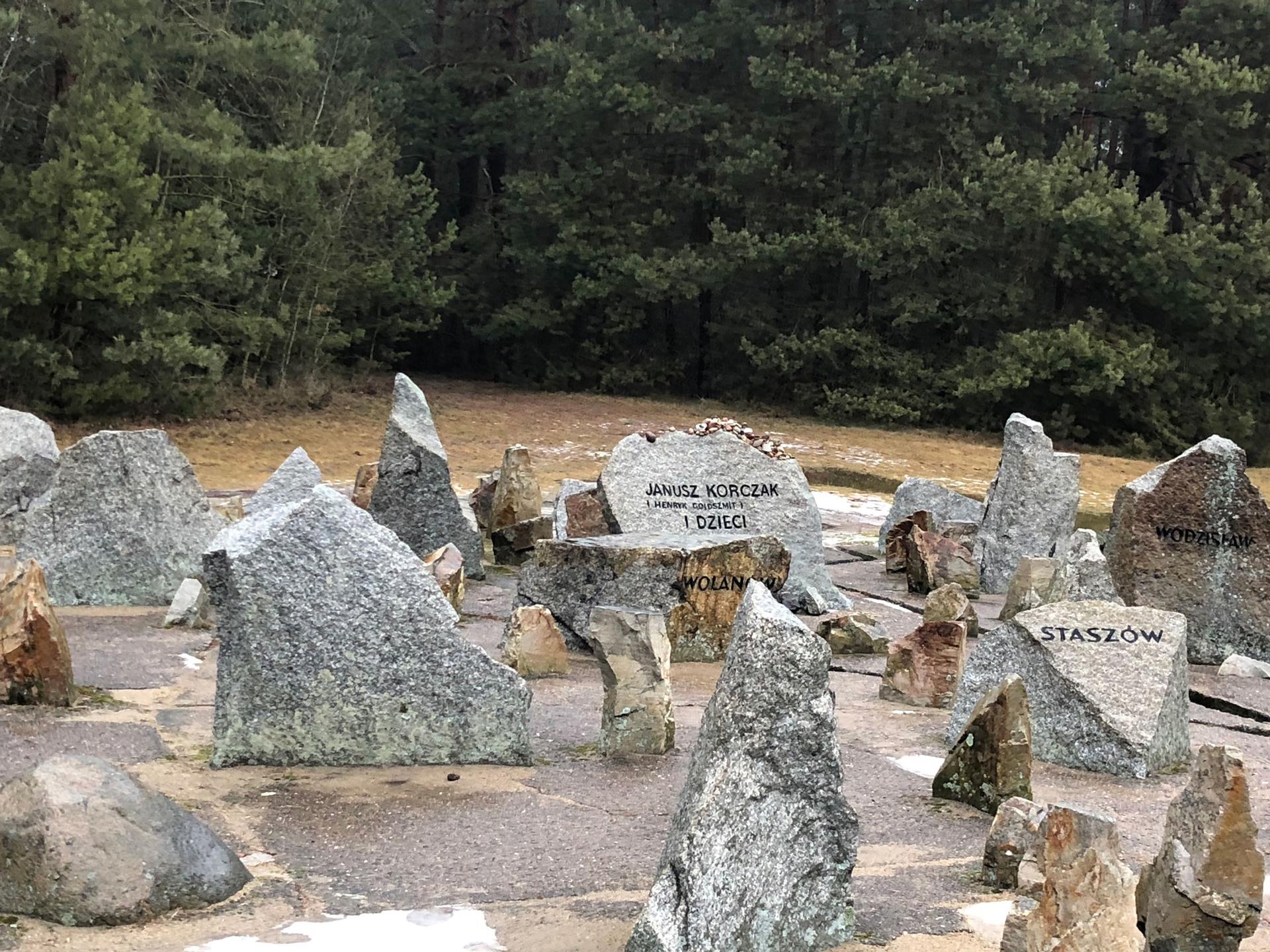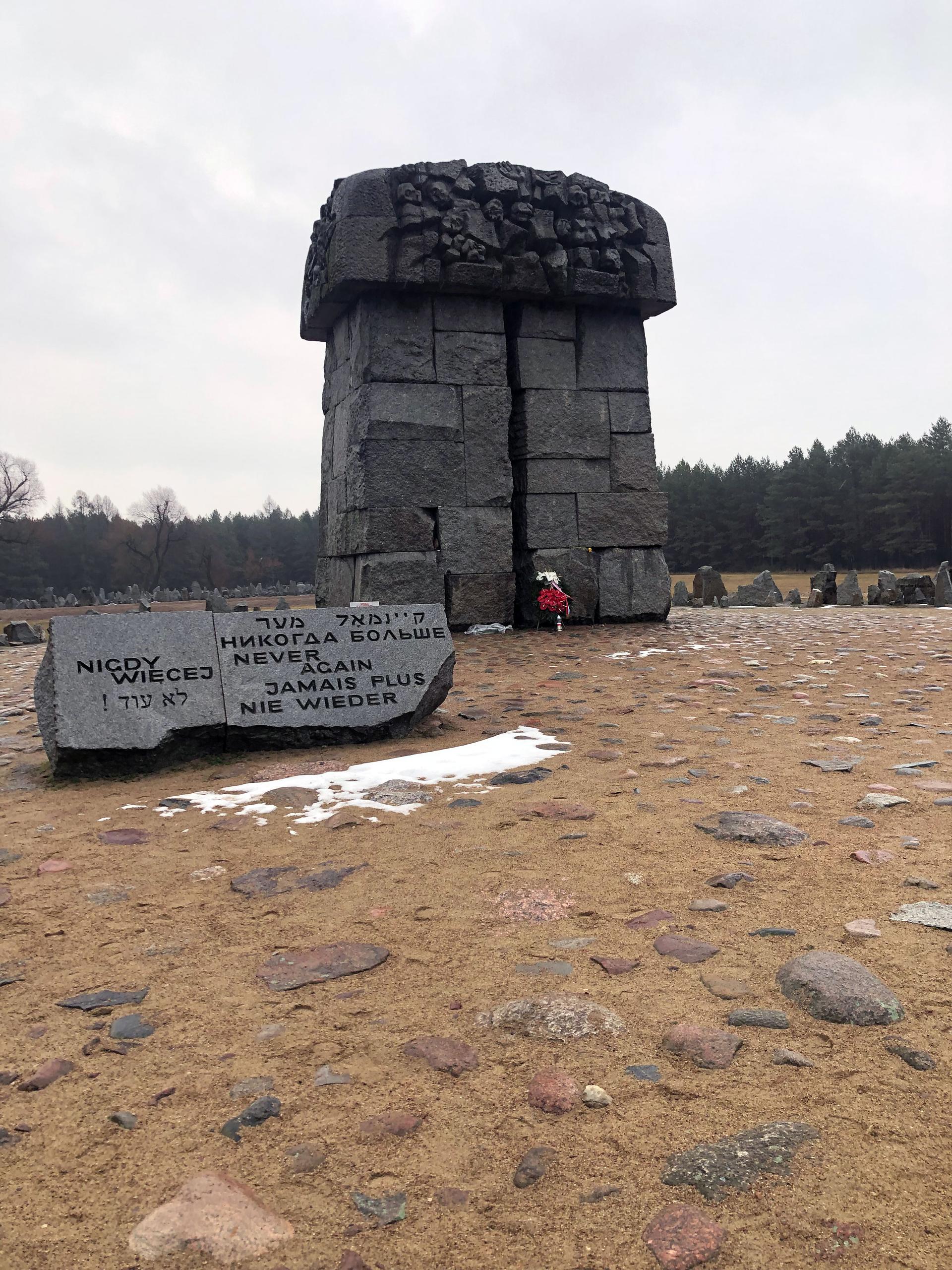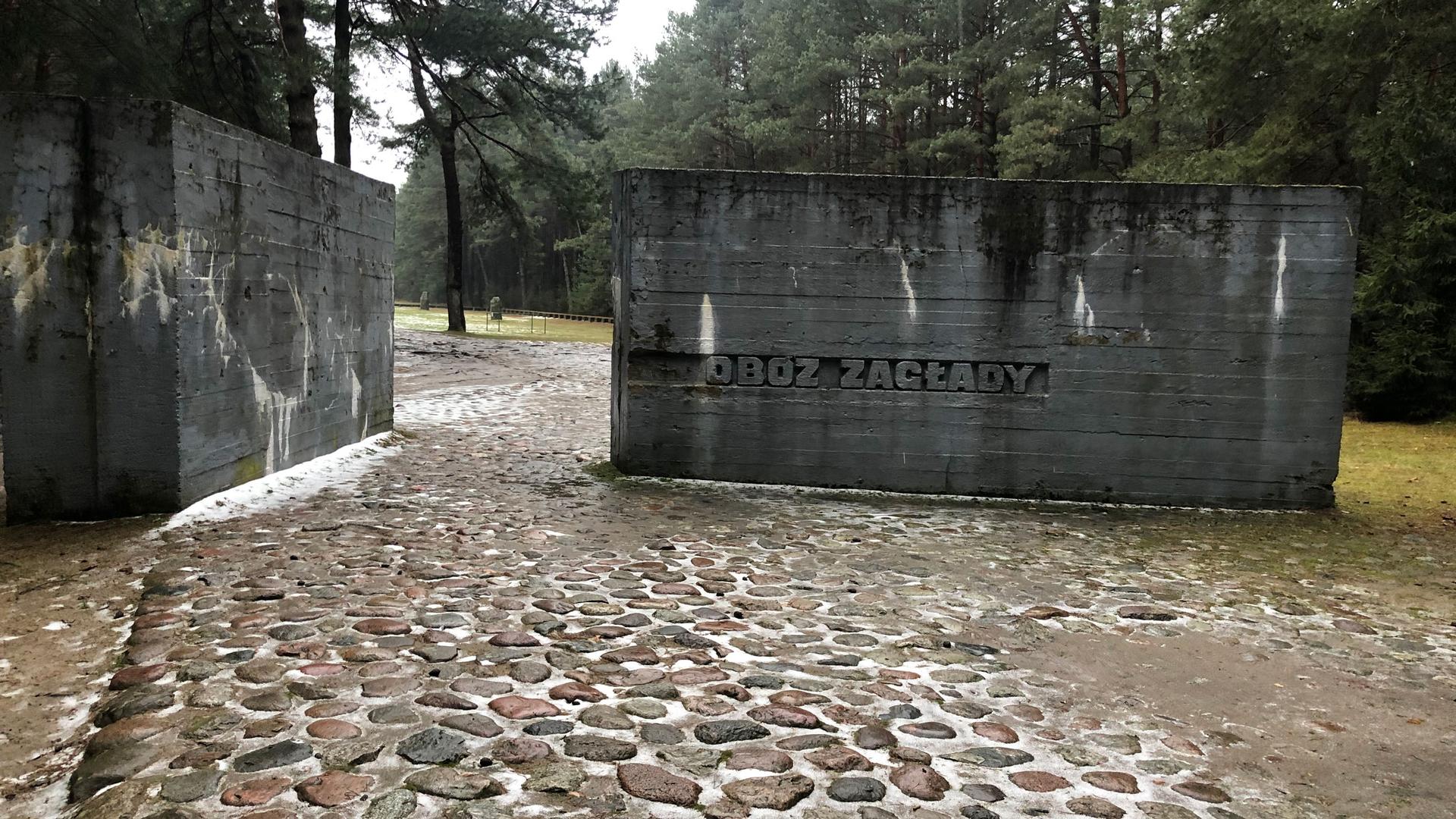Editor’s note: This story was broadcast in two parts. Part one is above. To listen to part two, click the audio player here:
About 50 miles northeast of Warsaw is Treblinka, a forest-covered village next to one of Europe’s largest World War II-era extermination camps.
More than 900,000 Jews were sent to Treblinka from all over Europe during World War II. Fewer than 100 survived.
Today the site has become a Holocaust memorial funded by the Polish government.
But a new monument honoring a non-Jewish Polish person has raised concerns among Holocaust historians about how the current far-right government is distorting history.
Unveiled in November 2021 at the former Treblinka train station, the monument features a 21-year-old Polish railway worker named Jan Maletka, who was shot and killed at the station in August 1942 for trying to give water to Jewish people trapped in cramped wagons dying of thirst.
“We think such persons [as Jan Maletka] have to be remembered.”
“We think such persons have to be remembered,” said Treblinka Memorial tour guide Pawel Maliszewski.
Related: Teresa Romanowska survived Nazis, Soviets and cancer, but died of COVID-19
But many historians say the memorial paints a misleading, or even false, picture of the past. During the Holocaust, the majority of Poles who gave water to Jewish people at that time actually demanded money in exchange, according to Jan Grabowski, a teacher at the University of Ottawa who specializes in Polish-Jewish relations.

As for the case of Jan Maletka, he said there’s little evidence to corroborate his story.
“There’s no corroboration in documents — nothing — and nothing that would allow anyone to build a monument. … Just think of what kind of slap on the face it is for each and every victim of Treblinka.”
“There’s no corroboration in documents — nothing — and nothing that would allow anyone to build a monument,” Grabowski said. “Just think of what kind of slap on the face it is for each and every victim of Treblinka.”
Related: From Auschwitz to Jerusalem, Holocaust survivor Giselle Cycowicz shares her story
Grabowski said the Maletka memorial is just the latest example of a larger trend by Poland’s Law and Justice Party to rewrite history. About 20 similar monuments to so-called “righteous Poles” have been erected across Poland since 2019.
“It’s a part of a relentless drive to distort [the] narrative and to present [the] Holcoaust as a pleasant time when Poles sacrificed themselves to save the Jews,” Grabowski said.
Historical evidence — including Grabowski’s own research — shows that sacrificial behavior was actually a rare exception.
He adds that extortion, violence and general antisemitism was widespread among Poles.
Related: Educators in France advocate for better Holocaust curriculum

Treblinka guide Malisewzki doesn’t deny this, but he still defends the Maletka memorial.
“This is the question — that, if in the sea of bad behaviors, is it worth to commemorate good behaviors?” Maliswzeki said. “The Treblinka Museum thinks yes, it’s worth it.”
But the distortion this creates has a trickledown effect that threatens how Poles perceive their own history, Grabowski said.
Related: Young people in Poland are rediscovering their Jewish roots
Take Auschwitz, Poland’s largest death camp where more than 1 million Jews from all over Europe were killed.
The Auschwitz museum is run by the Polish government, and Grabowski said that the tour in the Polish language tells a different story from the English-speaking tour. Today in Poland, 70% of non-Jewish Poles think they suffered as much as Jewish people did during the war.
“You have a situation now where over 50% of Poles are convinced that Auschwitz was primarily a place of Polish suffering,” Grabowski said.

He said he’s not surprised that the current government has invested so many of its resources into this historical revisionism.
“Polish identity is built on history and on a specific vision of history,” Leder said. “That version of history says we are the historical victims. We are heroic, we are always good, and the good guys. and we are the victims.”
He understands why many Poles are tempted to adopt this narrative.
And while Poland is still a democracy, Leder said he worries about the long-term effects of not telling the whole, unvarnished story.
“The only thing I think is sad and really problematic is that we will have again a generation which will know nothing about Holocaust history in Poland,” he said.
That’s why he thinks historians like Grabowski are more important than ever.
But the ability to conduct historical work fairly and accurately has also come under threat in Poland in recent years.
